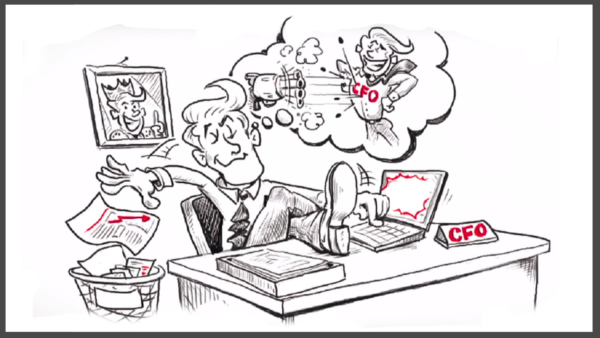Apparently, Daniel Kahneman — pretty famous economist / general social sciences guy who’s won a Nobel Prize and now been profiled by Michael Lewis — once said that, if he had a magic wand, he’d “eliminate overconfidence.”
Makes sense to me. Overconfidence and assumed certainty and/or “This path will be the way” ruins a lot of things, from work to relationships.
Is it the greatest problem we have societally? No.
Can it be totally eliminated? No.
But should we discuss it for a hot second? Yes.
The problem with overconfidence in a work context
Take a deep breath.
Overconfidence tends to be more prevalent in men.
It also tends to be more common in the wealthy.
Finally, it tends to be pretty common among those perceived as experts (which is pretty logical if you think about it).
Hmmm.
What does that three-way intersection point have in common?
Let’s see:
- Men
- Wealthy
- Perceived as experts
Oh, I know: those are exactly the type of people who become decision-makers in companies.
But why is this a problem? Who else would run companies?
Well, uh, women. Minorities. Uh, others.
The reason it’s a problem is this: there is a lot wrong with how we approach decision-making in companies, and most of it ends up pretty skewed.
Some of this is semantic: a lot of leaders think they’re making “strategic” decisions, for example, and they’re just creating logistical processes. So that’s part of the issue.
A bigger issue is variability.
Even among guys who have been together as a leadership team for years, there’s tons of decision-making variability.
Why is that?
Most people base their decisions off what impacts them — i.e. their specific silo. That’s just one reason silo thinking doesn’t work out so well for companies: perverse incentive structures, misaligned decisions, poor communication, etc.
So how do we make it better?
Easy-ish?
- Question more
- Er, ask better questions
- Implement micro-level concepts in your org like a commitment to A/B testing
- Lessen your own ego as relates to decisions
- Seek input from others, including those who normally challenge you
- Make a list of every quarter on where you missed targets and why
- Keep a journal where you write down 3 positive things and 1 negative thing per day — now you’ve got 7 things to improve on/re-contextualize your confidence at the end of the week
Just a short list, right? And most of it would be impossible for a lot of wealthy men who run companies. I know that. I’m not naive. I’m also from the Upper East Side of Manhattan, so I know a lot of these people and grew up around them. Overconfidence — even in fake it until you make it form — is very common.
But here, again, is Marc Andreessen — probably richer than you or I — talking about this same topic:
Why do we make those mistakes of omission so often? “It’s almost always because we have some theory for why something’s not going to work,” Andreessen says. “You develop an idea, and then you look for all the evidence that supports it and ignore all the evidence that disproves it. You get locked into your ideas.” That mindset works against you, Andreessen warns, because what didn’t work in the past might work now. “Just because MySpace didn’t reach Facebook levels of scale didn’t mean Facebook wouldn’t be able to. So you have to be ruthlessly open-minded and constantly willing to reexamine your assumptions,” Andreessen says. “You have to take the ego out of ideas, which is a very hard thing to do.”
It is hard to take the ego out of ideas. But you gotta do it. Overconfidence is a curse, and that curse harms both individual and business productivity.
